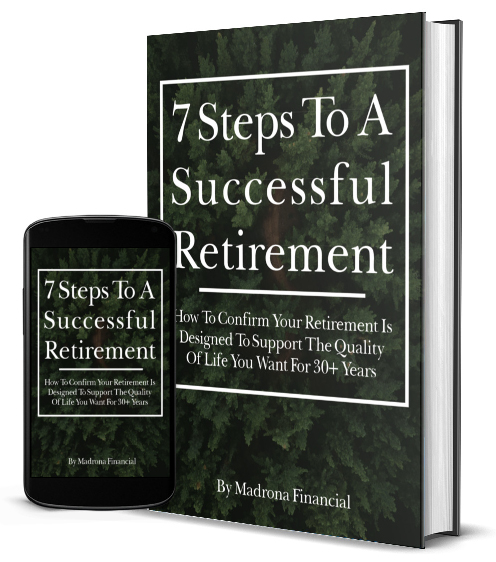
If there’s one thing that’s for certain about the market, it’s that nobody knows what will happen next. Recently, the Trump administration announced new steel and aluminum tariffs. Tariffs are special taxes that the government places on a product being imported from a foreign country. The new law creates a 25% tax on any foreign steel, as well as a 10% tax on aluminum entering the United States. For years now, China has been producing extremely cheap steel and aluminum that it sends into the global market, making it harder for other companies to keep up and stay competitive. Now, although not labeled as a retaliation for the new tariffs, China has proposed a tariff of their own on approximately $3 billion worth of U.S. goods. If the back and forth continues and more restrictions are placed, then a trade war may be looming. So, what does this all mean for the market and investors? Well, regardless of the market, tariffs or no tariffs… are you prepared for a changing market? Here are a couple quick tips to consider in helping you plan for the unknowns that exist, and surround Wall Street.
Review Your Portfolio, and Practice Diversification. According to the latest Country Financial Security Index, almost half (44%) of Americans stated that they don’t have a plan to make it through a 6,000 point drop in the Dow. Reviewing your current investment portfolio is one of the best places to start to help better prepare yourself and your retirement plan for the uncertainties that lie ahead. What was once right for you during your prime working years may not suffice given the fact that you have less time to make up potential losses in the market. When was the last time you stress tested your risk tolerance levels? If the market plummets 25% or 50%, similar to the bear market in 2008-2009, will you be feeling panicked or well-prepared? Once you review your current asset mix, it’s important to then rebalance your investment portfolio. According to a sample case study by Vanguard, an investor who started in 2012 with a 60/40 mix between their stocks and bonds, would have a 74/26 mix today had they failed to rebalance. While no approach guarantees against loss, in a well-diversified investment portfolio, simple changes or fluctuations in the market are less likely to be detrimental to the long-term sustainability of your overall retirement strategy.
Stay Focused for the Long Haul. Once you’ve reviewed and made some slight adjustments to your portfolio (if necessary), it’s now time to put confidence in your strategy. Even if you’re already retired, there’s still a little bit of time to grow your investments so don’t abandon your long-term plan and perspective just yet. Hopefully, your strategy was created with your personal goals and risk tolerance levels in mind. If this is the case, then why would you abandon it at the first sign of “trouble” when the market changes? Proper planning is more likely to help create a strategy that withstands the “bad” times, and is more likely to grow during the “good” times. Every investor has a different story with a different end game, and planning for retirement is not something that follows the “one size fits all” model. More often than not, long-term investing will subdue your emotional connections because when the market gets hot for a week or two and spikes up 10%, you will not be itching to sell. The same holds true for a week in the red, where you may be frustrated initially, but your long-term outlook will help keep your head on straight. Another advantage of staying focused on your long-term investing strategy lies within the power of compounding. Compounding can work to your advantage as it gives investors the ability to re-invest profits. Even at a low percent, dividends that are re-invested can help increase your overall wealth in retirement.
In the end, the best way to prepare yourself and your retirement strategy for a changing market is to sit down with a qualified financial professional. Just think about all the different ways you can go about developing, and carrying out your plan for retirement. They’re endless! Now is the time to make sure that you’re in a good position to live your life to the fullest. CLICK HERE to request your no obligation financial review and learn how we can help you plan for a safe and rewarding life in retirement.

